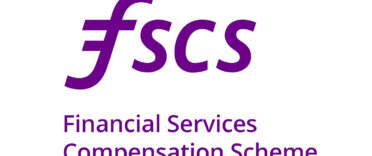The national press are quick to stick the boot into the financial services and financial advisers in particular. After all who can blame them? Taking them as a homogenous group you could argue that advisers made easy money for years by overcharging consumers for financial advice.
The tide eventually turned in part because of pressure from the media, embodied by the likes of BBC Moneybox's Paul Lewis. At the end of 2012 the financial regulator (the FCA) brought in a raft of new rules aimed at making the financial advisory industry more transparent. That meant getting rid of some trail commissions, where consumers have money deducted from their investments ad infinitum for advice they can barely remember receiving.
Yet, like an addict being starved of their drug of choice the financial advisory industry has been led kicking and screaming into this more consumer friendly world. But the FCA didn't make them go cold turkey allowing certain trail commissions to carry on until April 2016. I cover this in detail in this week's podcast.
How to bring about lasting change
This weening off phase just emphasises how slow change is within the industry. So how can you encourage greater change and even speed up the process of reform?
The answer is not to just berate the industry. Journalists, like Paul Lewis, shine a much needed light on the industry but just occasionally I feel they enjoy being the bogeyman. We are left with two sides (journalists on one and financial advisers on the other) slinging mud at each other with consumers used as pawns (often in the form of case studies) to try and win the argument. The FCA also join in the furore now and again.
In truth I don't take either side in the debate. I have been on Paul Lewis' radio show a few times and respect his work. He has been rightly recognised for his tenacious approach in tackling issues head-on for the benefit of his listeners. Yet I am qualified to give financial advice having worked most of my life in the industry and attained numerous qualifications in compliance and advice including the CFP. The fact that I chose not to be a financial adviser is neither here nor there. The point is that I also respect and champion what good financial advisers can do.
Time for a truce?
Ironically journalists and financial advisers in particular could learn from each other if the most influential among them cooperated. Not only that but they could transform the financial services industry for the better. Both industries are under threat and are having to change to adapt to the new world of online solutions or face losing any relevance they had with consumers. Journalists have a talent for creating 'sizzle' and engaging consumers. More importantly they can engage readers on a range of topics. The trouble is that while they often engage they seldom move consumers any closer to any of their life goals.
On the other hand financial advisers have the ability to transform consumers' finances and help them achieve their financial goals. Yet they lack the ability to convey it. If financial journalists and financial advisers drew back from the front line of their battle they might actually work out that they share many of the same values. They just express them in conflicting ways.
Yes there will be exceptions, but that's even more reason for both sides to work together to champion the way things should be done. I don't expect either side of the debate to extend the olive branch but neither should they be naive enough to think consumers will sit and watch. Whenever there is conflict human nature is to avoid it.
Financial refugee crisis
With a war of words consumers don't know who to believe so move off in search of something else. They are the equivalent of financial advice refugees. Their ranks are also swelled by the number of people being orphaned by their financial advisers because they are no longer economically viable. Consumers are more connected to each other than they are to either the arguing financial services or newspaper industries. In this consumer connected world (akin to financial advice refugee camps) news travels fast even if it's 'I've been offered this guaranteed investment opportunity in rare stamps, you should try it too'. It makes easy pickings for fraudsters and scammers.
So while the financial press and the financial services will fight on because they think they know what's best for consumers perhaps both sides should pause and just ask consumers what it is they actually want. It's wiser to build something better than to fight over and destroy that which already exists.
Build it right and they will come
In my view lasting change in the industry, for the benefit of consumers, can only come from within it. Just like a drug addict going clean, the industry has to want to change. That means the industry has to see the benefit in changing the way it does business. Or in other words creating a 'carrot' to complement the dual 'stick approach' resulting from journalistic tale telling and FCA rule making.
What I am about to tell you is not intended to be self promoting but simply to highlight how easily we could reform the financial services industry. It also emphasises why I believe consumers could benefit from a meeting of the best minds within the financial services industry, the financial press and the financial regulator.
MoneytotheMasses.com was created by me five years ago as a side project while working within in the financial services industry. The website helps consumers with their finances covering all areas from simple money tips through to complex financial planning. It gives consumers what they want, which is unbiased and independent advice (or guidance) in a language they understand without being constantly sold to. Consumers don't view their finances in neat boxes such as pensions, mortgages, investments and protection. They certainly don't think their heating bill is any less important than their retirement planning even if financial advisers do.
The fact that MoneytotheMasses.com has since gone mainstream and reached over 1 million consumers organically (that means without spending money) proves that consumers actually want to engage with financial services. If the success of MoneytotheMasses.com to date is not a big enough carrot for financial services I don't know what is.
Yet MoneytotheMasses.com is just an example of what can be achieved if you swallow professional pride and combine financial advice, journalism and an understanding of regulation. Perhaps rather than the endless war of words it's about time all sides tried a different approach.




